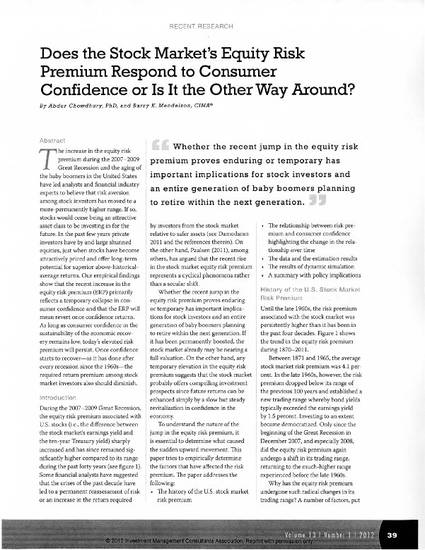
The increase in the equity risk premium during the 2007- 2009 Great Recession and the aging of the baby boomers in the United States have led analysts and financial industry experts to believe that risk aversion among stock investors has moved to a more-permanently higher range. If so, stocks would cease being an attractive asset class to be investing in for the future. In the past few years private investors have by and large shunned equities, just when stocks have become attractively priced and offer long-term potential for superior above-historical-average returns. Our empirical findings show that the recent increase in the equity risk premium (ERP) primarily reflects a temporary collapse in consumer confidence and that the ERP will mean revert once confidence returns. As long as consumer confidence in the sustainability of the economic recovery remains low, today's elevated risk premium will persist. Once confidence starts to recover- as it has done after every recession since the 1960s- the required return premium among stock market investors also should diminish.
Available at: http://works.bepress.com/abdur_chowdhury/93/

Published version. Journal of Investment Consulting, Vol. 13, No. 1 (2012): 39-44. Permalink. © 2012 Investment Management Consultants Association Inc. Used with permission.